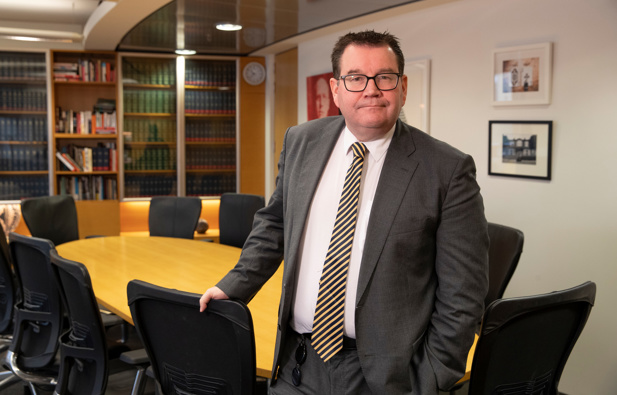Economists are warning that job losses will continue to mount, despite the Government's multi-billion-dollar extension of its wage subsidy scheme.
The first tranche of the 12-week policy – first announced on March 17 – came to an end yesterday.
And Finance Minister Grant Robertson said today the second tranche - which runs from today until August 9 - would be it; there would not be a third extension.
Since coming into force, the scheme has seen:
• $11.013 billion paid out to 1,665,724 employees
• 461,815 applications approved
• 51,297 applications denied
• 4036 refunds, valued at $136.4 million
As part of the Government's Covid-19 recovery budget, the scheme was extended for a further eight weeks.
Starting at 9am today, businesses which have suffered a 40 per cent Covid-19 related loss in revenue will be eligible for the lump-sum payment.
Robertson – who expects 230,000 businesses would be eligible for the extended scheme – has heralded the policy a success so far, saying it has saved thousands of jobs.
"Eighty-nine per cent of businesses said the wage subsidy meant they would be able to keep operating for the foreseeable future, and only 6 per cent said they intended to make staff redundant in the next few months."
Robertson told Newstalk ZB's Mike Hosking the scheme had given companies breathing space. "We said on the very first day we wouldn't be able to save every job and every business, but we believe it's done the job of cushioning the blow of a totally unprecedented one in 100-year shock."
Robertson said he could understand Prime Minister Jacinda Ardern's anger at The Warehouse, which announced more than 1000 jobs could go, after it took up the wage subsidy scheme.
"I can understand what the Prime Minister is saying there. You have got a business like the Warehouse when you have a lot of small businesses - and I get a lot of emails - who have really dipped into savings, often into personal bank accounts to be able to keep their business going forward...
"Then we see some of our larger businesses with these big layoffs, many which perhaps aren't even that related to Covid, they probably related to plans they already had.
"Everyone's balance sheets are being stretched here... the taxpayers, the Government on behalf of taxpayer, small businesses... we want to make sure everyone is pitching in."
Asked whether some companies were taking the Government for a ride, Robertson said: "The wage subsidy scheme was designed to keep people on and we said please retain your staff for the 12 weeks. With level 1 kicking in, sales are right up there, the Warehouse themselves said their sales were right up there, we were creating that breathing space so people could come out the other side.
"They have played by the rules of the scheme but now the opportunity for all New Zealanders to take that spirit of coming together that we did for the health response [exists] for the economic one.
"Businesses will make their decisions but we are all entitled to our views about how we should be coming together."
As well as small businesses taking up the scheme, bigger international companies have also received payments.
The New Zealand arms of Louis Vuitton, Gucci and Prada have collectively claimed more than half a million dollars.
Despite Robertson's optimism over the scheme so far, economists are still forecasting job losses.
Independent economist Cameron Bagrie said the wage subsidy extension would "without a doubt save some jobs".
But he made clear the emphasis was on "some".
"The reality is if you're still trading 40 per cent down, you're in pretty serious trouble."
He added that it is likely New Zealand will experience another wave of job losses – some are already happening but Bagrie expects a lot more after the eight-week extension ends.
Infometrics senior economist Brad Olsen agrees that more job losses are coming.
According to Treasury data, the scheme's extension would cover more than 900,000 workers.
But Olsen said he still expected job losses to mount.
"As businesses continue to assess business conditions, the weaker spending and investment outlook will force many businesses to downsize their workforces to fit the new level of economic activity."
Estimates vary on what the total jobless figure will be. But in May's Budget, Treasury revealed it expected unemployment would reach almost 10 per cent in September.
It is then expected to recover over the coming months and years, eventually falling back to 4.2 per cent in two years' time.
Some economists say this forecast is far too optimistic.
National's finance spokesman Paul Goldsmith said now that the country is at level 1, a more targeted subsidy scheme is needed.
"The Government needs a better growth plan than simply massive Government spending while waiting for a vaccine."
The wage subsidy scheme has undergone a number of changes since it was first announced on March 17 – 19 days after New Zealand's first case of Covid-19.
That first iteration of the policy made up the bulk of the Government's initial $12 billion Covid-19 economic relief package.
Fulltime workers would get $585 a week, while part-time employees would get $350 – the money was paid in a lump sum for a period covering 12 weeks; it's the same for the scheme's extension.
Just over $5 billion was allocated to businesses, which had suffered a 30 per cent Covid-19 related drop in revenue, to pay out to their employees.
The scheme was soon expanded and the amount the Government was spending on the programme more than doubled.
But Robertson again expanded the programme in May's Budget, this time for eight weeks and only to businesses which had suffered a 50 per cent drop in revenue.
Last week, that figure was reduced to 40 per cent which, according to Robertson, will mean 40,000 more businesses were eligible.
Take your Radio, Podcasts and Music with you










